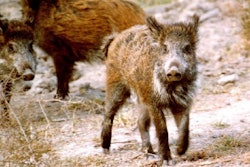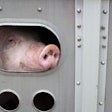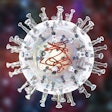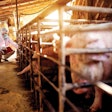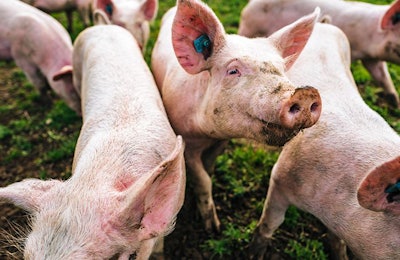
Philippines’ president is creating a national task force to tackle the African swine fever (ASF) situation in the country.
The Philippines is to have a new national task force to prevent the entry of, and contain and control animal diseases, such as African swine fever (ASF). Last week, an executive order was signed by President Rodrigo Duterte for the creation of this task force, according to the Philippine News Agency (PNA).
At that time, PNA reports, backyard and commercial farms in several areas of Luzon were affected by the disease, and more than 67,000 pigs had been culled to control its further spread.
According to the executive order, ASF “poses catastrophic effects on the Philippines’ swine industry, the production supply chain and the economy,” and it requires “drastic disease control and preventive measures, including mass culling of the affected hog population.”
Agriculture Secretary William Dar has been appointed to chair the new task force.
ASF spreads in the Philippines
ASF continues to spread to new areas of the Philippines. In the past week, new cases of ASF have been detected on the island of Luzon in a third town in Camarines Sur, where over 1,250 pigs have been culled this week.
Almost 5,600 more have been culled in Pangasinan, reports PNA. In that province, suspicion has fallen on swill feeding as a source of infection. Farmers were being urged to cook the material again before feeding it to their animals, or to cease this practice altogether. They are also being warned not to break local bans on selling pork at markets in infected areas.
Regions remaining ASF-free include Eastern Visayas, according to PNA, although movements of pigs and pork are restricted in some localities. The requirement for documentation with all shipments is a source of frustration to some producers.
ASF jumps to new area of Indonesia
ASF has been detected for the first time in East Nusa Tenggara. Almost 2,000 pigs have died from the infection in four regions in the province, reports The Jakarta Post. Affected areas are all on the island of Timor — Belu regency, North Central Timor regency, Kupang regency, and Kupang.
According to the same source, ASF has also “killed tens of thousands of pigs in North Sumatra and hundreds of pigs in Bali.” Recently, officials had cast doubt on the cause of death of the Bali animals.
A local official said the infection had spread to East Nusa Tenggara from neighboring East Timor (Timor-Leste). The disease was reported in that state for the first time in September 2019.
More ASF-infected wild boar found in South Korea
In South Korea, seven more wild boar have tested positive for the ASF virus. Five of the animals were found in the Hwacheon region of Gangwon province, according to the latest report from the agriculture ministry to the OIE. A further case occurred in the Cheorwan region, and the last animal was in Yeoncheon region of Gyeonggi province. All these locations are close to South Korea’s border with its northern neighbor.
On February 24, news agency Yonhap reported a further nine wild boar had tested positive for ASF. These too were in the border region. They bring the country’s total cases to 257.
North Korea battles animal-related diseases
North Korea is reported to be strengthening its efforts to control ASF, reports South Korean news agency, Yonhap. This source was citing Pyongyang’s official news agency that these measures also aim to control other animal diseases.
National veterinary quarantine center personnel are being dispatched across the country to monitor signs of ill health. As well as examining wild animals and birds, tests will also be conducted on domestic animals, according to Yonhap.
In May 2019, North Korea confirmed its first cases of ASF in pigs. These were part of a single village herd near to the border with China. No updates on the disease situation have been reported to international agencies since that time.
Japan strengthens ASF control measures
This week, Japan’s Cabinet approved a reform bill that will further strengthen ASF controls in place points of entry, reports Japan Times. Among the changes will be higher fines for those illegally importing meat products into the country, and greater powers to inspect the luggage of incoming visitors.
With Japan set to host the Olympic Games in Tokyo this summer, the government is hoping that the new measures to control animal diseases will be in place in April.
Previously, the government revised the law to allow the culling of healthy pigs in areas where ASF outbreaks occur.
So far, Japan remains free of ASF.
Recently, China announced a new ASF control plan.
More wild boar infected in Russia’s Far East
Three more wild boar have tested positive for the ASF virus in the Far Eastern federal district of Russia.
According to the latest report from the agriculture ministry to the the World Organisation for Animal Health, they were found in two locations — one in Primorsky krai, and the other in Amur oblast. Previous cases have been detected in these regions.
ASF situation in Europe’s domestic pig population
Over the past week, no European countries have officially recorded new ASF cases in domestic pigs with the OIE.
Up to February 23, there have been 150 confirmed outbreaks of ASF among domestic pigs in Europe since the start of 2020, according to the European Commission (EC). The total has risen by 13 since the previous week. From this source, worst affected has been Romania (138 outbreaks). Bulgaria has reported nine outbreaks, two outbreaks have occurred in Ukraine, and one in Greece.
More cases among European wild boar
Reporting new cases of ASF in wild boar to the OIE in the past week were Hungary (202 cases), Latvia (2) and Moldova (1).
EC records 2,049 confirmed outbreaks of ASF in wild boar for the year to February 23. This represents an increase of 346 from the previous week.
According to this source, Poland has recorded the most outbreaks — 781 — which is a jump of 197 from the week before. Other states to have confirmed ASF outbreaks to the EC so far this year are Hungary (596), Romania (261), Bulgaria (207), Latvia (62), Lithuania (49) and Italy (32). Belgium, Estonia, Serbia, Slovakia and Ukraine have each reported no more than 30 outbreaks so far this year. EC figures do not include Moldova or Russia.
View our continuing coverage of the global African swine fever situation.



